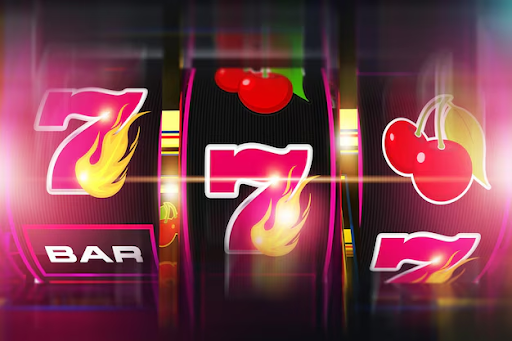Gambling problems may manifest itself in a variety of ways and impact people from many areas of life. It is possible that your gaming will grow from a simple pastime to an unhealthy fixation with possibly life-threatening consequences.
Having a gambling addiction in any type of gambling, whether it is at a casino or at a horse racetrack, may cause pressure in your relationships, interfere with your employment, and result in financial disaster. There are, fortunately, therapy alternatives available for this condition. It’s possible that you’ll end yourself doing things that you never imagined you’d do, such as collecting large debts or even stealing money in order to gamble.
An impulse-control problem, such as pathological gambling, compulsive gambling, or gambling disorder, gambling addiction is characterized by the inability to control one’s urges to engage in gambling activities. Follow the link for more https://www.nhs.uk/live-well/addiction-support/gambling-addiction/.
Those who are compulsive gamblers find themselves unable to control their want to gamble, even when doing so may have negative consequences for themselves or their loved ones. Whether you’re actually winning, whether you’re penniless or flush, you’ll keep gambling no matter what the consequences are—even when you’re aware that the odds are stacked against you or that your bankroll cannot bear to lose.
Of course, it is feasible to have a gambling addiction while not being fully out of control during the moment of the addiction’s development. Problem gambling is defined as any gambling behavior that has a negative influence on one’s life and is considered to be harmful. Being preoccupied with gambling, investing an increasing amount of money and time to it, seeking losses, and continuing to gamble in the face of serious consequences in your life are all signs of having a gambling addiction.
Gambling addiction, also known as problem gambling, is usually associated with a variety of mental illnesses or mood disorders, including depression. Problem gamblers are more likely than the general population to suffer from substance abuse issues, untreated ADHD, stress-related diseases such as depression and anxiety, as well as bipolar disorder. To cure your gambling addiction, you’ll need to address these issues as well as any other underlying issues that may have contributed to it.
However, despite the fact that you may feel helpless to prevent gambling, there are a number of actions you can take to fight the addiction, repair your relationships and finances, and ultimately regain control of your life. Read more here.
Gambling addiction is characterized by the following signs and symptoms:
When compared to drug or alcohol addiction, gambling addiction is sometimes referred to as a “hidden sickness” since it does not present itself in the same ways that other addictions do, such as with bodily signs and symptoms.
Many issue gamblers, including themselves, have a reputation for downplaying or downplaying the seriousness of their problem. If you do any of the following, on the other hand, you may be suffering from a gambling problem:
Do you have a strong desire to keep your gaming activity concealed from other people? Gambling secretly or lying about how much you bet is possible if you feel others would be perplexed by your actions or you believe you will surprise them with a significant winning will be possible.
Moreover, maintaining your gambling under control is becoming tough for you. Even if you don’t even have any cash, you participate in casino games. Another option would be to continue to gamble until you’ve spent every last dollar you have, and then move on to money that you don’t have—money that you could use to make payments on your bills and credit cards, or to purchase items for your children. It is possible that you will feel tempted to borrow, sell, or even steal stuff in order to get gaming dollars to play.
Everyone in your circle of friends and family is worried about your well-being. Denial is essential in the maintenance of problem gambling. If your friends and relatives are concerned about you, pay close attention to what they have to say about your situation. Having the bravery to seek assistance does not imply a lack of strength.
How to put a stop to your gambling addiction for good?
Not stopping gambling, but rather remaining in treatment — which requires making a long-term commitment to never bet again — is the most challenging component of therapy for many problem gamblers. Because of the Internet, gambling has become substantially more accessible, making it more difficult for addicts who have recovered to avoid relapse.
Anyone with a smartphone or computer with an internet connection may access online casinos and bookmakers at any time of day or night, seven days a week. If you surround yourself with people who hold you accountable, stay away from tempting environments and websites, relinquish control of your finances (at least for a period of time), and substitute healthier activities for gambling in your life, you may be able to maintain recovery from gambling addiction or problem gambling.
Look for therapy in rehab
Getting help for a gambling addiction is never easy, and seeking professional assistance does not suggest that you are weak or incapable of coping with your problems. However, it is critical to recognize that every gambler is unique, which means that you want a recovery program that is tailored specifically to your needs and circumstances in order to be successful.
Treatment options at the rehab facilities in Parker can be a good option to start with. These services are meant for persons who suffer from a strong gambling addiction and who are unable to stop from gambling unless they have access to ongoing treatment and rehabilitation.
It is suggested that you get treatment for any underlying disorders that may be contributing to your gambling addiction, like drug addiction or mental health concerns such as anxiety, depression, OCD, or ADHD, if you are suffering from them. Counseling, medication, and alterations in one’s way of life may all be necessary in this situation. In certain situations, problem gambling can be a symptom of bipolar disease; consequently, your doctor or counselor may need to rule out this possibility before making a diagnosis of bipolar disorder.





